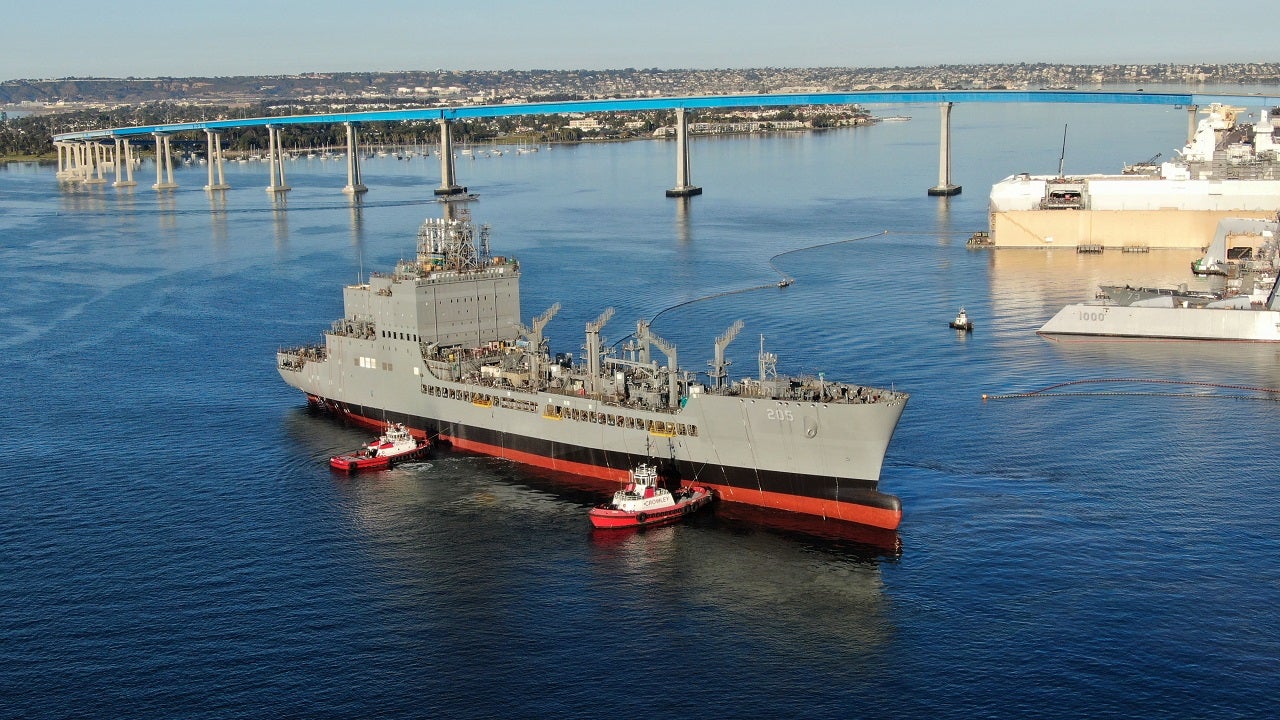
The US Navy’s first John Lewis-class fleet replenishment oiler, T-AO 205, has been launched at General Dynamics National Steel and Shipbuilding Corporation (NASSCO) shipyard in San Diego.
The future USNS John Lewis (T-AO 205) and its sister ships are being built to replenish fuel and stores for US Navy ships operating at sea, as well as jet fuel for aircraft assigned to carriers.
The Military Sealift Command (MSC) will operate the vessels.
In 2016, the US Navy awarded the company a contract for the construction of the next-generation of fleet oilers, previously known as the TAO(X).
GD NASSCO will build a total of six vessels of the class.
The oilers are designed to carry 156,000 barrels of oil, the navy’s new biofuels.
Capable of reaching a speed of 20k, the vessels provide dry cargo capacity and aviation capability.
The company commenced construction of the future USNS John Lewis (T-AO 205) in 2018. It will be christened later this year.
Over 575t of steel was required for the construction of the 742ft-long vessel.
General Dynamics NASSCO president Dave Carver said: “NASSCO is immensely honoured to be a part of this historic day launching the future John Lewis.
“This ship reaffirms our nation’s stability and represents the same strength, values and honour that her namesake, the Honourable John Lewis, stood for.
“The shipbuilders of NASSCO are proud to ensure his legacy will live on in this majestic vessel.”
The company noted that construction on the third John Lewis-class vessel, the future USNS Earl Warren (T-AO 207), started in late 2020.



